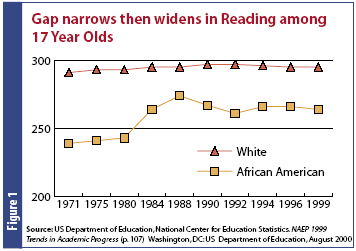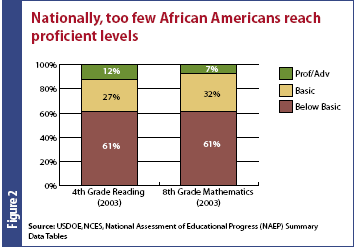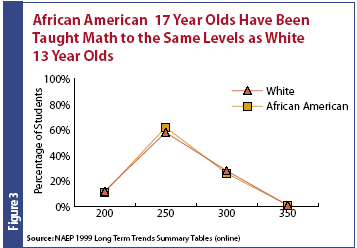Introduction
The subject of Ebonics is a controversial one. This is because many believe that Ebonics constitutes poor English. It is the contention of this paper that Ebonics is a dialect of English spoken by African Americans (and others in their communities) with variances between each community. Although it may be improper to teach Ebonics in schools, it is appropriate for teachers to become aware, if not trained in, Ebonics to assist their students in learning standard American English. This is not to be confused with teaching Ebonics as a second language or placing students who speak this dialect in English as a second language classes. It is also the contention of this paper that Ebonics is a Creole language such as pidgin English spoken in the Caribbean, Hawaii, and other areas where English was introduced but not initially taught to the local populations. These populations consisted of mixed language speakers who were put together and expected to communicate such as slaves in early American history and the Chinese, Japanese, and Hawaiians in Hawaii.
What is Ebonics?
According to Encyclopædia Britannica Ebonics is:
“a language variety that has also been identified at different times in dialectology and literary studies as Black English, black dialect, and Negro (nonstandard) English. Since the late 1980s, the term has been used ambiguously, sometimes with reference to only Ebonics, or, as it is known to linguists, African American Vernacular English (AAVE; the English dialect spoken by many African Americans in the United States), and sometimes with reference to both Ebonics and Gullah, the English creole spoken by African Americans in coastal areas of South Carolina and Georgia and on the offshore Sea Islands. (Encyclopedia Britannica)
The Oakland Debate
Back in the mid 1990’s the City of Oakland, California’s school district decided that something must be done about students’ low grades and the low graduation rate of African American students. At that time the average grade point average of high school students was 1.8 (Barnes, p248). Oakland’s district at that time was 53% African American with those students on average having the lowest grades (Harris, p2). Of the African American students 71% were enrolled in special education classes (Barnes, p248). Many of those students could not effectively communicate with their teachers. The district’s solution was to look for a way to boost student success rates. The chosen method was to address the target population’s use of Ebonics as their primary language and enroll those students in English as a second language classes just as Spanish speaking students were. It was hoped that targeting the language differences would boost student’s GPAs and graduation rates.
According to Oakland Unified School District:
1997 STATISTICS OF OAKLAND’s DISTRICT
- 53% of Oakland’s District is African American.
- 71% of Special Education students were African American.
- 37% of GATE classes were African American
- 64% retained were African American.
- 67% classified as truant were African American
- 71% of African American males attend school on a regular basis
- 19% 12th grade African American students did not graduate.
- 80% of all suspended students were African American.
- 1.80 average GPA of African American Students represent the lowest GPA in the district.
The Oakland proposition brought to light the problem of African Americans often having difficulty in school mastering standard American English. Oakland’s solution was very controversial with many arguing that “Black English’ was not a language but a dialect much like Southern American English spoken in the Southern United States. Those who speak other dialects of American English are schooled in standard American English and are not treated as English as a second language students thus African American students should be treated no differently.
The Clinton Administration weighed in on the debate and ruled that “Black English” was not a language but a dialect. The ruling included that Ebonics should be treated as a dialect and that no federal funds could be used for English as a second language classes for Ebonics speakers. Schools that did include special programs for Ebonics speakers would lose Federal funding for their English as a second language classes. Then California Governor Pete Wilson concurred with the Clinton Administration ruling and stated that he would “fight any attempt by Oakland to get state funding for its Ebonics program” (Harris, p3). It was Wilson’s contention that any program, like Oakland’s Ebonics program, would only serve to hold back African American children rather than ensure their success. In the end Oakland received no funding for their program and it was discontinued. Their teachers did receive training in Ebonics though and African American students were given special classes to help them develop better English language skills.
Advantages of Training Teachers
Although Ebonics should not be treated as a second language there are many advantages to training teachers to understand Ebonics. One advantage is that teachers will be able to understand what their students are trying to communicate while giving the teacher an opportunity to model Standard American English for their students to emulate. Anita Bohn of Illinois State University points out in her article how a kindergarten teacher named Iris was consistently requested by parents as their child’s teacher. The reasons given include that she lives, works, and goes to church in the same community as their children and understands them. Iris, an African American, did not use Ebonics in her classroom but used Standard American English. She did, however understand the Ebonics spoken to her and thus was able to model Standard American English in response to her students. This example shows how educating teachers would be advantageous. Teachers would be better able to model Standard American English in response to Ebonics speakers if the teachers understood their students. Obviously, in the Oakland case, total immersion in Standard American English was not working for students who spoke Ebonics.
The real question here is how to fund Ebonics training for teachers in districts with a disproportionably high ratio of Ebonics speakers when Ebonics is classified as a dialect. One of Oakland’s major problems was that teachers had a hard time communicating with their students. Their final resolution was to create a program that focuses on developing English proficiency among African American students in the district.

Attitudes About Ebonics
Attitudes vary about Ebonics. Many in the African American community are against the use, teaching, or encouraging the use of Ebonics because the feel it holds back youngsters from succeeding. Bill Cosby, a noted African American comedian commented:
“They’re standing on the corner and they can’t speak English,” he exclaimed. “I can’t even talk the way these people talk: ‘Why you ain’t,’ ‘Where you is’… And I blamed the kid until I heard the mother talk. And then I heard the father talk…. Everybody knows it’s important to speak English except these knuckleheads…. You can’t be a doctor with that kind of crap coming out of your mouth!” (Sullivan, p2)
This is in contrast with the Linguistic Society of America that declared that Ebonics or AAVE (African American Vernacular English) is a systematic and rule governed language as established by scientific studies (Sullivan, p2).
Ebonics is also seen as part of the greater African American culture that exists mostly in urban inner city environments. The insisting that these individuals do not speak Ebonics is in a way stripping them of something uniquely their own. Ebonics is also associated with crime, drug dealers, and the undereducated. How the public defines Ebonics may shape their opinion as well (Barnes, 249). Critics of Black dialects have considered them “inferior, slovenly, and deviant speech that rendered speakers unable to adequately function in society” (Barnes, p249). Some believe that Black English is a result of cultural or social deprivation (Bernstein, 1961).
Conclusion
The refusal to identify Ebonics as a dialect will do more harm than good. Like Southern American English, The English spoken in New England, and the English spoken in California, Ebonics is a dialect of standard American English. Not recognizing it as such only serves to disenfranchise a large segment of the American population.
Bill Cosby is right and wrong in his statement. Doctors very rarely speak Ebonics but those who do speak Ebonics have been successful in life. A visit to Morehouse College will show that. The recognition of Ebonics as a dialect will mean that children will be better served and better educated in schools that serve that segment of the population.
Oakland’s attempt to have Ebonics identified as a separate language has hurt the overall Ebonics debate. Oakland would have better served its urban population by identifying Ebonics as a dialect and working to put into place programs to help young African Americans master standard American English sooner. Oakland is a good example of a district that serves mostly African Americans and thus would be a good place to test programs for those students to master Standard American English. Successful programs could then be used as models for other predominantly African American urban districts such as Cleveland and Detroit.
Parents are an essential member of the team when it comes to educating our young. African American parents need to also recognize Ebonics as a dialect and help their children learn Standard American English. Programs should be established in these communities to assist parents and children alike master Standard American English. Bill Cosby should do more than insult the community but should encourage parents, and communities, to help their children master Standard American English to be successful in school and in life.
Ebonics does not need to be abandoned as a dialect no more than New Englanders need to drop their unique linguistic patterns. Teachers who work in districts that serve predominately African American students should be taught Ebonics as a requirement to remain employed within that district. These teachers could then understand their students and thus model Standard American English for their students. This is vitally important at the elementary level where students have their first educational experiences.


References
Barnes, S. (2003, September). The Ebonics Enigma: an analysis of attitudes on an urban college campus. Race, Ethnicity & Education, 6(3), 247. Retrieved May 8, 2008, Web.
Bernstein, B. (1961). Social Class and Linguistic Development: A Theory of Social Learning. Education, Economy, and Society. New York, Free Press.
Bohn, Anita Perna. (2003). Familiar Voices: Using Ebonics Communication Techniques in the Primary Classroom. Urban Education. Retrieved May 9, 2008 From Sage Publications, Axia Library Data Base, Web.
African American English. (2008). In Encyclopædia Britannica. Web.
Harris, John F. (1996). U.S. Bilingual Education Funds Ruled Out For Ebonics Speakers. Washington Post Wednesday December 25th Edition pA02. Web.
Ogbu, John U. (1999). Beyond Language: Ebonics, Proper English, and Identity in a Black-American Speech Community. American Educational Research Journal Summer 1999, VOl 36, No 2, pp. 147-184. Web.
Sullivan, Andrew. (2004). Bill Cosby versus the LSA. Web.
Williams, Robert L. (1997). The Ebonics Controversy. Journal of Black Psychology. Web.